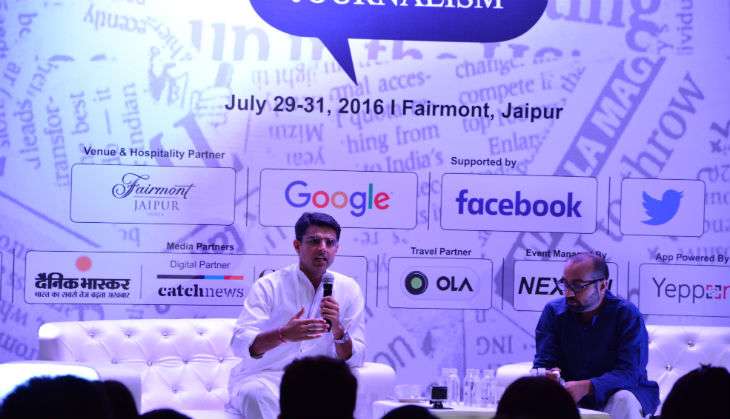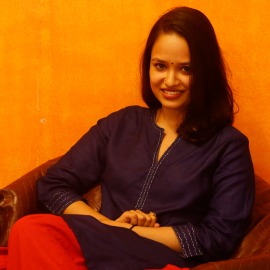
Former Minister of Corporate Affairs and Rajasthan Congress chief, Sachin Pilot, is a man of easy manners. In conversation with Business Standard's Mihir Sharma at the Vox Media Festival - Talk Journalism 2016 - in Jaipur, Pilot looked at home with his surroundings.
He's worked for a short while with BBC, Delhi, he tells the audience and suddenly the session chalked out for him - 'Shooting the Messenger: Are Politicians and the Media Fair to Each Other?' - felt almost tailor-made for him.
Armed with a winning smile, he gauged the mood of his audience and then, with that smooth charm that only politicians and fictional gangsters seem to possess, began the session without much ado.
Here are the best excerpts from the session:
Is 'news' now personal?
Pilot, unlike many of his contemporaries, seems to have his diplomacy filter toned down. In a thinly veiled attack at the voyeuristic, sensationalistic, yelling contest that now doubles up as primetime news hour, he said: "You can appreciate a politician or denounce him or her as long as you know that what you're writing, or transmitting on air is based on professional analysis."
Translation: Tu-tu, main-main does not a news report make.
The budding buddy system
"Sometimes," says Pilot, "there are criticisms regarding certain news groups, publications or TV channels being closer to a party - that is not okay. People at times tell me what content I'm going to see when I switch on the news at 9 - that I feel is not a good thing."
To his credit, at least he answered the question without being defensive or pointing fingers. The most worrying trend, according to him, is that increasingly 'journalists are getting more ideologically affiliated.'
Where is broadcast news heading?
Nowhere, according to Sachin Pilot. And yet, he acknowledged that despite most channels going into huge financial losses, TV's still too big to be overruled. Pilot did however throw some major shade at the content produced by news channels off late:
"Running a news channel (in India) is about presence, you have leverage to keep a politician or party in check. It is used more as a tool than a medium that provides news. That's the difference between an international news channel and us."
"Half an hour of watching international news and I feel like I've learned something. It makes you think. Half an hour of primetime television in India gives you migraine. It makes you think, what are you learning? Do we come out more informed, more equipped about the issue? No."
Ouch.
Doordarshan, you okay?
When Sharma asked Sachin what he thought of state-owned media and the dire state its most prominent face, Doordarshan, was in, it was almost as if the latter was hoping to be asked the question. "Sadly," Sachin said with a ghost of a smile, "if you watch Doordarshan's coverage for a few hours it would become clear which party is in power."
As scattered applause, and a few sniggers broke out in the hall, Pilot clarified, "I'm not blaming our opposition - this is true of all parties - whichever one is in power. State-owned broadcast channels should set the standard for others, which isn't happening currently."
True story, that.
So did WE come out of Sachin Pilot's session feeling 'more informed, more equipped about the issue'? Perhaps. As a bonus, there was no migraine. What we learned for sure however, was that that distinct feeling of being hoodwinked which often follows politicians most faithfully, was absolutely missing in Sachin Pilot's case. Surprised? Yeah. Us too.
First published: 30 July 2016, 1:02 IST


![BJP's Kapil Mishra recreates Shankar Mahadevan’s ‘Breathless’ song to highlight Delhi pollution [WATCH] BJP's Kapil Mishra recreates Shankar Mahadevan’s ‘Breathless’ song to highlight Delhi pollution [WATCH]](http://images.catchnews.com/upload/2022/11/03/kapil-mishra_240884_300x172.png)

![Anupam Kher shares pictures of his toned body on 67th birthday [MUST SEE] Anupam Kher shares pictures of his toned body on 67th birthday [MUST SEE]](http://images.catchnews.com/upload/2022/03/07/Anupam_kher_231145_300x172.jpg)






